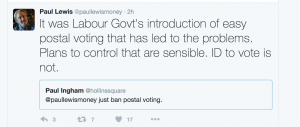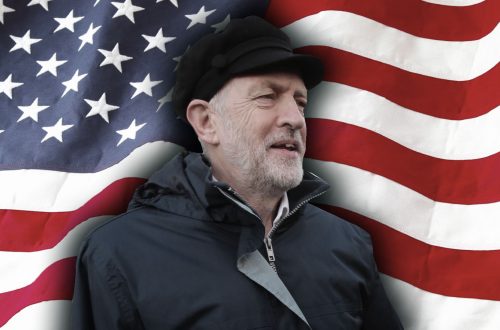Following Sir Eric Pickles’ review into electoral fraud, a pilot scheme will require voters to show ID in selected councils.
Different councils will trial different types of photo ID, including driving licences, passports or utility bills to prove addresses, although the creation of a new form of ID specifically for voting has been ruled out by ministers.
Northern Ireland already requires voters to show ID before casting their ballot.
Measures will also be introduced to clamp down on fraud associated with postal ballots.
People could also be required to re-apply for a postal vote every three years in an attempt to stop ballots being intercepted by unscrupulous activists, the government said. This would cut the number of voter mail-outs being sent to old addresses. In addition, ministers plan to extend offences protecting the secrecy of ballots to cover postal votes and require legal proof for requests of a waiver from giving a signature on a postal ballot.
Critics of the new ID requirement, often also concerned about the impact of individual voter registration, point out that this is likely to disadvantage low income or young voters who may own none of these documents – particularly in those selected councils which will only accept photo ID. Others, by contrast, think utility bills (because they don’t include a photo) are inadequate, and many find it odd that no form of ID is currently needed.
According to the Telegraph the problem areas identified have ‘large Muslim populations’. The Electoral Commission in fact phrased the selection rationale a little differently:
It has warned that there is a particular concern at the “vulnerability of some South Asian communities, specifically those with roots in parts of Pakistan or Bangladesh, to electoral fraud”.
Perhaps surprisingly, the official Labour response is guarded support for these moves, whereas Labour moderates, such as Stella Creasy and Wes Streeting, are strongly opposed. Ken Livingstone is another dissenting voice, as is financial journalist Paul Lewis. Like him, I agree it would be useful to know more about the impact of voter ID in Northern Ireland – and I’m inclined to agree with his executive summary too:



